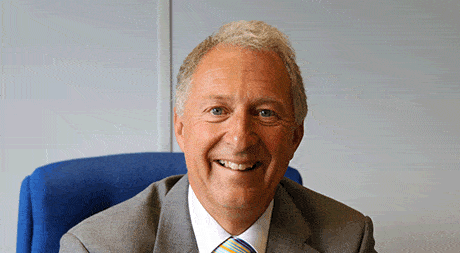Mortgage fraud has been a factor for many years, and fraudsters are constantly looking for new ways to expose systems.

David Thomas BA FCIB FPFS is board member of the Society of Mortgage Professionals and joint managing partner of Chadney Bulgin
Mortgage fraud has been a factor for many years, and with lenders and intermediaries working ever closer together, incidence has remained low. Nevertheless, fraudsters are constantly looking for new ways to expose systems, and any change of circumstance can potentially facilitate a different angle.
COVID-19, and the national lockdown in late March, posed such a change. Staff at both lenders and intermediaries were sent home almost overnight, and whilst some were perhaps used to working from home, the vast majority were not. An 'alien' working environment, telephone and internet connectivity suddenly under strain, firewalls not tested, and cyber crime suddenly posed a huge risk.
Hindsight has shown that there were in fact few data issues, perhaps testimony to firms’ disaster recovery plans, strong support from both senior management and IT departments, and strong training around cyber-crime generally.
The subsequent government stimulus to the mortgage market on stamp duty, together with a partial realisation that jobs no longer need to be in a city has led to a significant upsurge in demand for property both in the suburbs and the countryside. Increased demand inevitably leads to increasing fraud attempts, and we are now seeing this.
There is almost a desperation to move quickly, perhaps for fear of a further lockdown, but in particular the stamp duty 'cliff edge' of 31 March next year. Two areas have come to the fore over recent months – 'staged income, and the self-employed.
Staged income can take a number of forms, but typically where an applicant may attempt to inflate their income, either from requesting their employer to show a higher figure (typically smaller employers), or creating a fictitious second income by getting a “mate” to employ them for a couple of months and confirm what might be needed.
Interestingly, one of my team had an enquiry where the customer’s income was nowhere near that required for the mortgage requested. The customer then suggested he would be able to increase his income to make it fit. It was explained to the customer that this would be mortgage fraud, and the call ended. Later in the week at our mortgage team meeting, this story was relayed, whereupon another member of the team, just a few hours earlier, had the very same potential customer on the phone, this time with………………a higher income. Clearly we were able to reject the customer, but the reality is I’m sure that he has sought a new intermediary.
Self-employed applicants can have greater scope. Typically, they will ensure they maximise expenses to offset income and minimise tax. We have seen examples recently where, in the current year, expenses have mysteriously reduced thus inflating net profit. Some lenders will work on most recent net profit, others may take an average of say the last three years. This latter 'method' means an applicant may pay more tax this year, but that may be an acceptable price to pay for the mortgage required.
There are a myriad of other potential fraud methods, and I would encourage you to read the Society of Mortgage Professionals’ Good Practice Guide on fraud.
With all types of fraud, vigilance is the watchword – remember you cannot be too careful.



